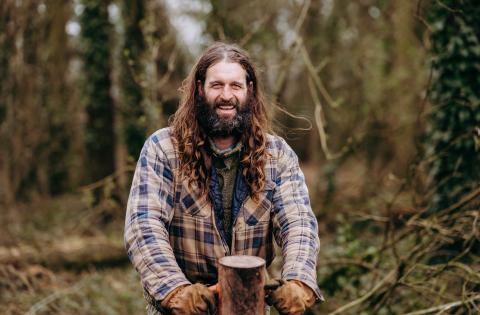EXECUTIVE SUMMARY
Linking up farms and woodlands seen as key to preventing ecosystem collapse
Installing ‘green corridors’ to allow connectivity between farms and woodlands is being suggested as an essential approach to mitigating against climate change and ecosystem collapse.
Mathew Plumb, who has a five hectare mixed woodland unit in Monmouthshire, says that
this system of land management is important for the future of life on Earth.
It was one of Mr Plumb’s findings after embarking on a Farming Connect Management Exchange study when he investigated sustainable forestry and solutions for carbon sequestration.
That research took him to Knepp, a West Sussex estate once intensively farmed but since 2001 has been devoted to a pioneering rewilding project.
“Unequivocally, the most important lesson I have taken away from Knepp is how much we need to drive and derive public goods under sustainable land management,’’ says Mr Plumb.
To do this, connecting the landscape through linking up farms and woodland units, is essential, he suggests.
Accessibility needs to increase too, says Mr Plumb.
“Bringing the public onto my unit, providing accommodation, refreshments, experiences and education that are derived from an improvement of ecological services is good for ecology and good for people,’’ he says.
Since his study, he has opened a four-pitch campsite in one coupe of his woodland, each serviced by a compost toilet with rainwater shower.
“This is the most value for money investment I can currently make, and works really well at Knepp,’’ says Mr Plumb.
Offering a charcoal and coppicing course and sales of logs, charcoal, breakfast ingredients, and a take away evening meal has added value.
Mr Plumb expresses concern that farm units in Wales are, in his view, not ready to transition to sustainable land management.
To drive the change, he believes low intervention systems are the future.
And so too is landscape welfare. “Only harmonious practices are sustainable,’’ he says.
MANAGEMENT EXCHANGE REPORT:


